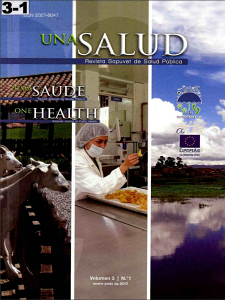Abstract
Foods contain the basic substances to preserve life and health, but the lack of hygiene in their handling, storing, preparing and serving make them a means conductive to disease transmission. The main purpose of this study was to evaluate the knowledge about the care and handling of foods among consumers who are responsible of preparing them at home, as well as to identify the risks to which food is exposed in the household and which may cause potential food poisoning. Out of a total of 400 random surveys, 83.3% (380) of the answers correspond to social levels 3 and 4 in Bogota. The results of this study reveal that while the knowledge about associating safe food handling practices in the household and food safety is good, it remains less than optimal among consumers, who play close attention to the place of purchase and cold storage of the foods, but fail at controlling the freezer’s temperature. They also showed a gap in food safety practices and the prevalence of certain risk behaviors. The importance of risk communication and consumer education on critical points is revealed, as well as the need to carry out studies to compare practices and knowledge in different socioeconomic levels and the fact of considering specific decision makers.Downloads
Download data is not yet available.



